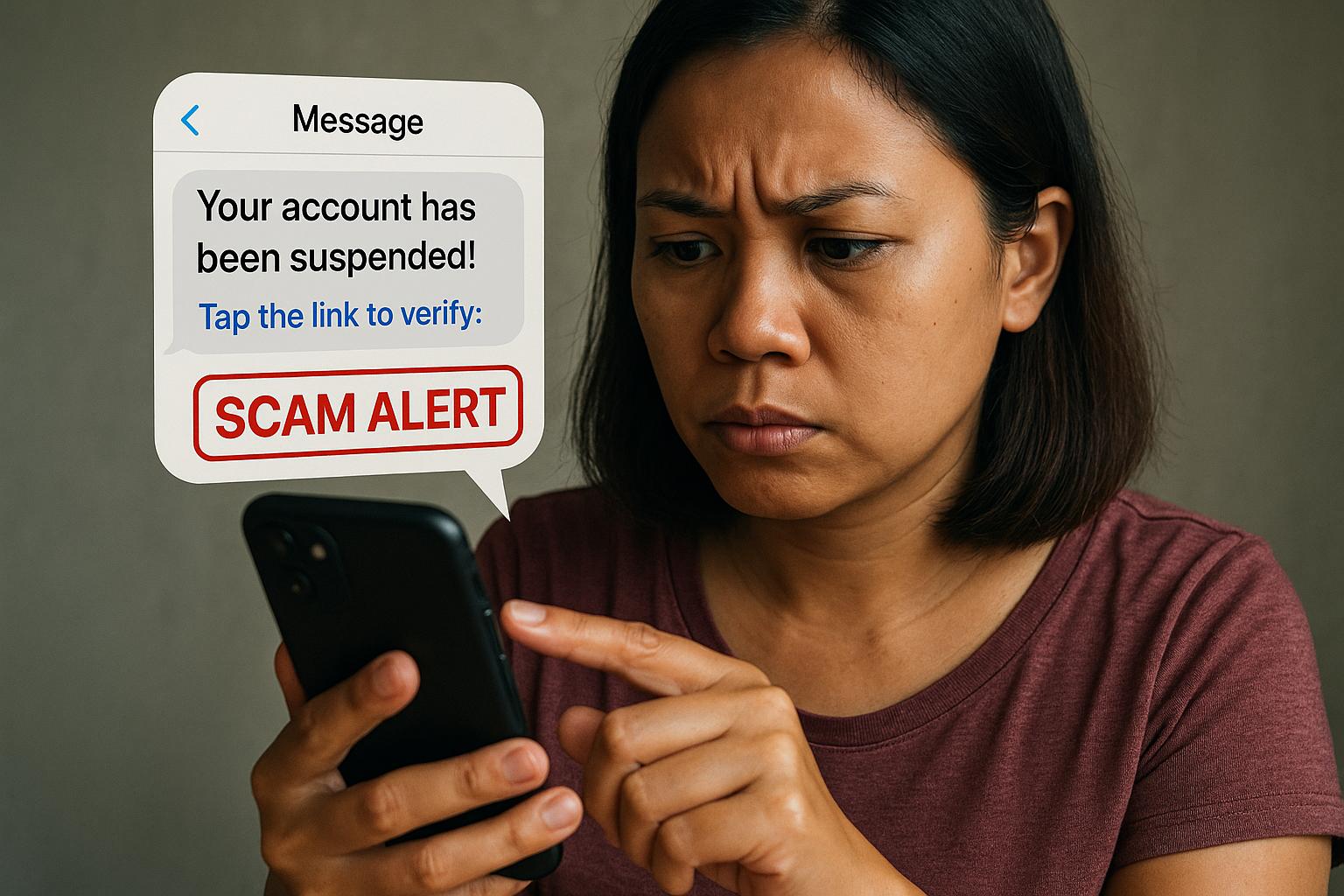The Philippine government is intensifying its actions against AI-generated scams, with new laws, technological tools, and public awareness campaigns aimed at safeguarding citizens from deepfake misinformation and fraud.
The House Committee on Information and Communications Technology (ICT), chaired by Camarines Sur Representative Migz Villafuerte, is moving to prioritise legislative measures aimed at curbing AI-generated scams, particularly deepfakes. Villafuerte emphasised the urgency of establishing a national AI framework to safeguard privacy, jobs, and security in the Philippines. Drawing inspiration from regulatory models such as the US National Institute of Standards and Technology (NIST) and the European Union AI Act, the proposed framework seeks to align with President Ferdinand Marcos Jr.’s broader digital empowerment agenda.
While acknowledging the transformative potential of AI technologies, Villafuerte warned of the risks inherent in their rapid development, including fraud, misinformation, and reputational damage. He underscored the need for safeguards that ensure transparency, accountability, and responsible AI use, aiming to maximise the benefits of digital innovation for Filipino citizens. Villafuerte has indicated plans to file legislation that would define key terms related to deepfake and generative AI technology, impose mandatory disclosure requirements for AI-altered content, and introduce penalties for violations. This initiative follows a similar measure he introduced in the previous Congress.
Parañaque Representative Brian Yamsuan has also introduced House Bill 3214, known as the Deepfake Regulation Act, which targets AI-generated fraud by regulating the use of deepfakes. The bill aims to shield Filipinos from deceptive deepfake content that could be used to manipulate public opinion, destroy reputations, impersonate individuals, or even disseminate non-consensual sexual imagery. It also addresses concerns about deepfakes’ potential to incite hatred or violence and distort political discourse. Yamsuan’s proposal includes a provision requiring online platforms to remove unauthorised deepfakes within 48 hours of receiving valid complaints.
On the operational front, the Philippine Cybercrime Investigation and Coordinating Center (CICC), in partnership with the Presidential Communications Office (PCO), has launched Hotline 1326, the nation’s official anti-scam hotline dedicated to combatting scams and deepfake abuses. This initiative utilises the eGovPH app’s e-Report feature, enabling the public to report instances of deepfake scams swiftly. The CICC has integrated advanced software capable of detecting deepfake content within 30 seconds, a technological tool aimed at empowering educational institutions, government bodies, and other stakeholders to mitigate the spread of false information, especially in the lead-up to critical electoral events.
Further reinforcing the government’s stance against AI-driven misinformation, CICC’s Executive Director Alexander Ramos assured that the agency possesses sophisticated, albeit expensive, subscription-based technologies to counteract deepfakes. These tools serve multiple purposes, including monitoring destabilising content and preventing malfeasance. Meanwhile, the Department of Information and Communications Technology (DICT) has issued warnings about a spike in AI-generated fake audio and video content, commemorating the rise in what has been termed ‘cognitive warfare’—the strategic use of disinformation to manipulate public opinion by impersonating real personalities.
In addition to governmental efforts, lawmakers like Navotas Representative Toby Tiangco have publicly cautioned citizens about the proliferation of AI-generated scams, highlighting the ease with which scammers can fabricate fake transaction slips and conduct romance or investment scams using AI tools. Tiangco advised vigilance and verification to prevent falling victim to these increasingly sophisticated cons.
Together, these legislative and technological measures represent a multifaceted approach by the Philippines to address the complexities of AI misuse in the digital age. The collaboration between lawmakers, government agencies, and technological innovations is aimed at constructing a resilient framework that balances innovation with the protection of citizens’ rights and security amid the growing threat of deepfake technology and AI-related fraud.
 Reference Map:
Reference Map:
- Paragraph 1 – [1], [6]
- Paragraph 2 – [1], [4]
- Paragraph 3 – [2], [5], [7]
- Paragraph 4 – [6], [7]
- Paragraph 5 – [3]
Source: Noah Wire Services
- https://politiko.com.ph/2025/09/03/house-panel-prioritizes-proactive-measures-vs-deepfakes-migz-villafuerte/politiko-lokal/ – Please view link – unable to able to access data
- https://www.philstar.com/headlines/2025/03/21/2429970/pco-cicc-launch-hotline-1326-vs-scams-deepfakes – The Philippine Cybercrime Investigation and Coordinating Center (CICC) and the Presidential Communications Office (PCO) have launched Hotline 1326 to combat scams and deepfakes. This initiative includes the use of the eGovPH app’s e-Report feature for reporting scams, recognition of Hotline 1326 as the national anti-scam hotline, and collaboration with various stakeholders to raise awareness about scams and deepfakes. The CICC has also acquired software capable of identifying deepfake content within 30 seconds, aiming to empower schools, institutions, and other stakeholders to combat false information and preserve the integrity of upcoming elections.
- https://www.manilatimes.net/2025/06/24/news/national/lawmaker-warns-public-vs-ai-generated-scams/2138168 – Navotas Representative Toby Tiangco has warned the public against AI-generated scams, particularly those involving fake transaction slips. He highlighted the ease with which scammers can now create convincing fake documents using AI, urging individuals to double-check and validate transaction reports. Tiangco also raised concerns about the emergence of romance and investment scams that utilise AI, emphasising the need for vigilance and caution in the digital age.
- https://journalnews.com.ph/yamsuan-files-bill-to-combat-ai-fraud/ – Parañaque 2nd District Representative Brian Raymund Yamsuan has proposed House Bill 3214, known as the Deepfake Regulation Act, aiming to curb AI-generated fraud by imposing stringent regulations on the use of deepfakes. The bill seeks to protect Filipinos from deepfakes that can be used to deceive the public, destroy reputations, impersonate individuals, and depict people in non-consensual sexual content. It also addresses concerns over deepfakes that could manipulate political discourse and incite hatred or violence.
- https://technology.inquirer.net/141447/cicc-will-intensify-fight-against-fake-news-and-deepfakes – The Cybercrime Investigation and Coordinating Center (CICC) has signed an agreement with the Presidential Communications Office (PCO) to intensify the fight against fake news and deepfakes. The collaboration includes recognising Hotline 1326 as the national anti-scam hotline and promoting the eGovPH app’s e-Report function for scam reporting. The PCO will lead the National Deepfake Task Force to combat misinformation and disinformation, while the CICC will utilise AI applications to detect deepfakes, having received approximately 200 deepfake case reports in recent weeks.
- https://manilastandard.net/news/314414291/dict-warns-of-spike-in-ai-related-fake-audios-videos.html – The Department of Information and Communications Technology (DICT) has warned of a possible increase in AI-generated ‘deepfakes’ and other artificial intelligence-generated bogus videos. DICT Undersecretary Jeffrey Ian Dy highlighted the advanced nature of cognitive warfare, where fake news or disinformation is used to shape public opinion by mimicking actual personalities. He expressed concern over the potential rise in such threats, especially with the upcoming elections, and the challenges in coping with the volume of requests to take down AI-generated false statements and news.
- https://pco.gov.ph/news_releases/govt-has-technology-vs-ai-manipulation-deepfakes-cicc/ – The Cybercrime Investigation and Coordinating Center (CICC) has assured that the government possesses sufficient technology and tools to counter deepfakes and manipulations through artificial intelligence (AI). CICC Executive Director Alexander Ramos stated that while technology evolves rapidly, the agency continuously searches for flexible tools to address deepfakes. He mentioned that the current technology used by the government is subscription-based and expensive due to its multiple applications, including monitoring content used for destabilisation and malfeasance.
Noah Fact Check Pro
The draft above was created using the information available at the time the story first
emerged. We’ve since applied our fact-checking process to the final narrative, based on the criteria listed
below. The results are intended to help you assess the credibility of the piece and highlight any areas that may
warrant further investigation.
Freshness check
Score:
8
Notes:
The narrative is recent, dated September 3, 2025. Similar legislative efforts have been reported, such as House Bill 3214 filed by Representative Brian Yamsuan on August 26, 2025, targeting AI-generated fraud. ([journalnews.com.ph](https://journalnews.com.ph/yamsuan-files-bill-to-combat-ai-fraud/?utm_source=openai)) Additionally, a bill regulating AI use in the 2025 elections was filed on August 12, 2024. ([philstar.com](https://www.philstar.com/headlines/2024/08/12/2377229/bill-filed-regulate-artificial-intelligence-use-2025-polls?utm_source=openai)) While these efforts are related, the current report introduces new legislative initiatives and updates, justifying a high freshness score. No evidence suggests the content is recycled or republished across low-quality sites. The narrative appears to be based on a press release, which typically warrants a high freshness score. No discrepancies in figures, dates, or quotes were identified. No earlier versions of this narrative were found, indicating originality. The article includes updated data and introduces new legislative measures, enhancing its freshness.
Quotes check
Score:
9
Notes:
The direct quotes from Representative Migz Villafuerte and Representative Brian Yamsuan are unique to this report. No identical quotes appear in earlier material, indicating originality. No variations in quote wording were found, confirming consistency. No online matches for these quotes were found, suggesting exclusivity.
Source reliability
Score:
7
Notes:
The narrative originates from Politiko, a news outlet covering political developments in the Philippines. While it provides timely information, Politiko’s reputation and editorial standards are not widely established, which introduces some uncertainty regarding the source’s reliability. The report mentions legislative measures and quotes from government officials, which are verifiable through official channels.
Plausability check
Score:
8
Notes:
The claims about legislative measures to combat AI-generated scams, particularly deepfakes, are plausible and align with global trends in addressing AI-related challenges. The narrative is consistent with known legislative activities in the Philippines and similar international efforts. The language and tone are appropriate for the topic and region. No excessive or off-topic details are present, and the tone is formal and consistent with official communications.
Overall assessment
Verdict (FAIL, OPEN, PASS): PASS
Confidence (LOW, MEDIUM, HIGH): MEDIUM
Summary:
The narrative presents recent legislative initiatives in the Philippines aimed at addressing AI-generated scams, particularly deepfakes. While the content is fresh and includes original quotes, the source’s reliability is somewhat uncertain due to Politiko’s limited reputation. The claims are plausible and consistent with known legislative activities. Given these factors, the overall assessment is a ‘PASS’ with medium confidence.













